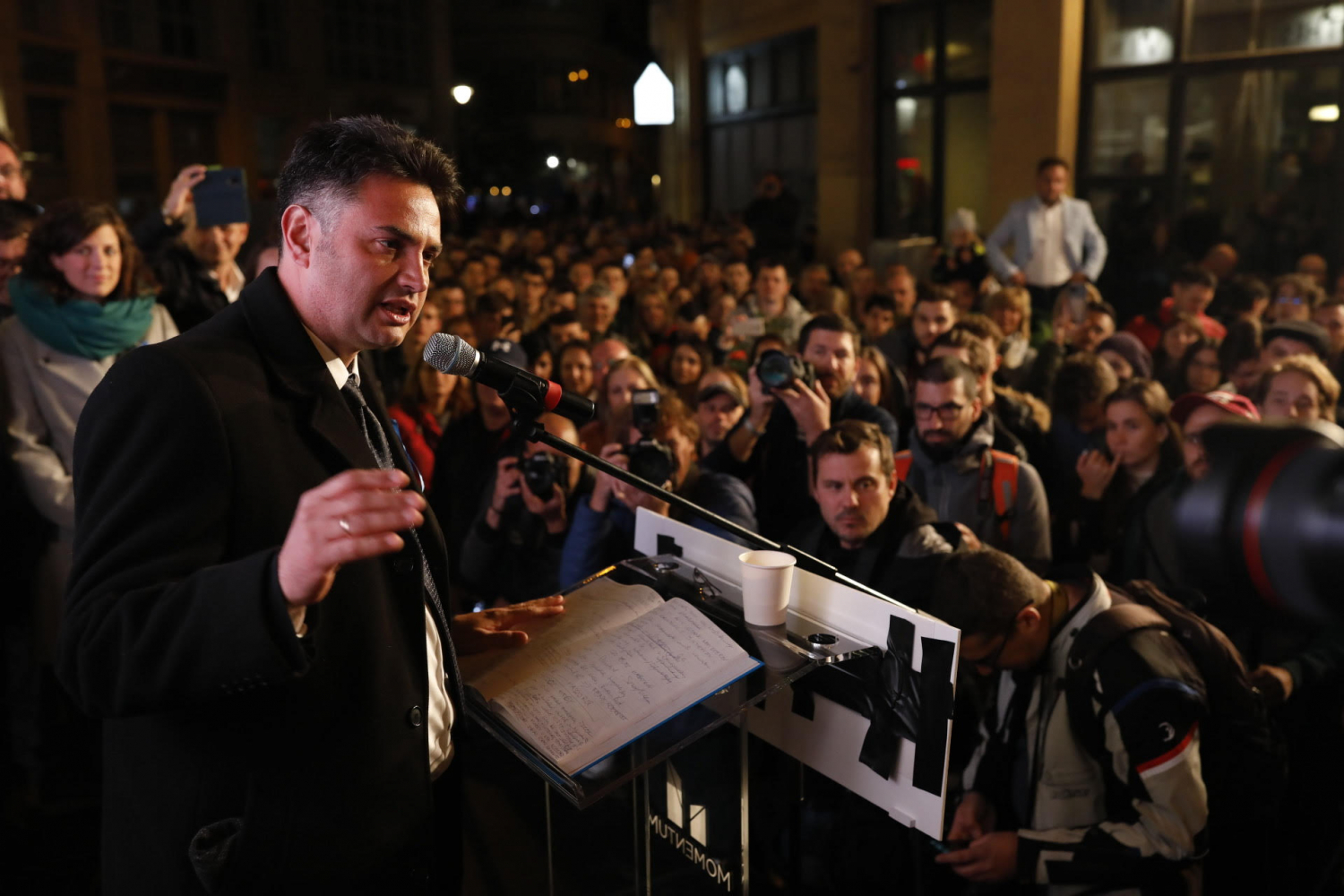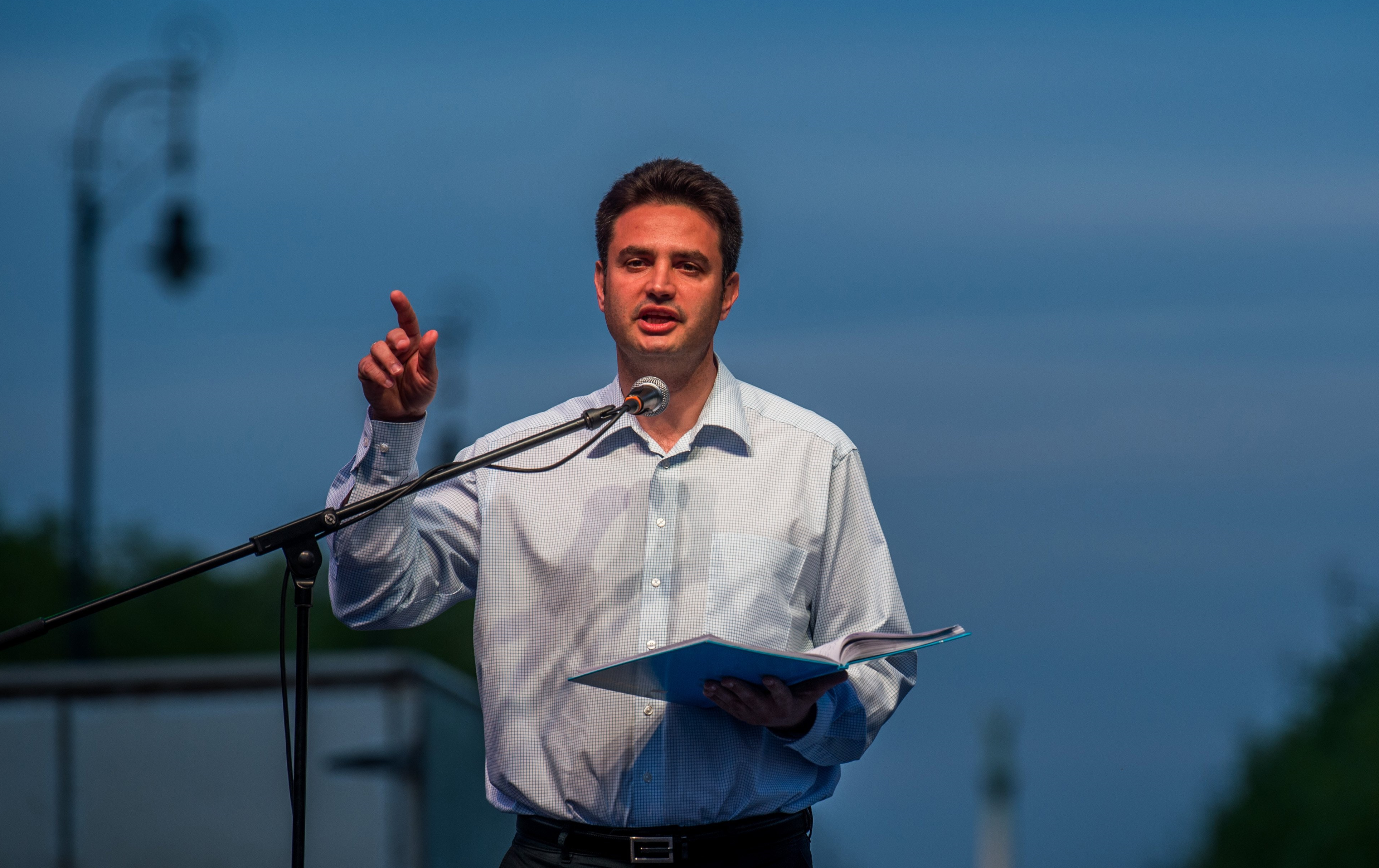
The mayor of Hódmezővásárhely pledged to build a "new, purer Hungary," adding that "Fidesz or no Fidesz" remains the crucial question after the primaries.Continue reading

On Sunday night it was announced that Péter Márki-Zay had won the opposition’s primary election. Unlike his opponents, he was not a well-known person in Hungarian politics- until now.
“Something happened that no one expected. I don’t recall any research, any analysis, or even a sentence by a politician that predicted even approximately this scenario,” renowned political scientist, Gábor Török, said, adding that Márki-Zay’s win shows that voters wanted a change in the opposition.
Márki-Zay acquired 372,313 votes (57 percent), making him the winner of the second round against Klára Dobrev of the Democratic Coalition (DK), who received 284,430 votes (43 percent). Telex reports that “with this result, the politician, who was considered an unlikely candidate for the second round of the primaries in the spring, has achieved the greatest success of his short but eventful political career.”
Márki-Zay (49) was born in Hódmezővásárhely, southeast Hungary, to a conservative, religious family. He has two brothers. His mother is a chemist from Hódmezővásárhely; his father is a physics teacher who came to Hódmezővásárhely from Gyula, Békés county. His great-grandfather was the principal of the Reformed grammar school in Hódmezővásárhely. He married his high school classmate, Felícia Vincze, with whom he has seven children. It is no exaggeration to say that he is a native of Hódmezővásárhely.
Before becoming a candidate for prime minister, voters were familiar with Márki-Zay as a mayor, even though he did not spend his whole life in Hódmezővásárhely. As he puts it, “although I have lived for years in other cities and countries, I have always remained a local.”
He graduated with degrees in marketing from the Budapest Business School, in economics from the Corvinus University of Budapest, and in electrical engineering from the Budapest University of Technology and Economics. He studied economic history at the Pázmány Péter Catholic University where he obtained his Ph.D.
In 2004, he and his wife decided to move to Canada with their children. In Toronto, he took a job as a marketing manager for a large auto parts dealership. Later, to enable his wife to learn midwifery, they moved to the United States, where Márki-Zay became a board member of a non-profit organization for workforce development in their place of residence. They returned to Hungary after five years, and he was appointed head of strategic planning at the Szeged electric company, then head of the customer service, and then head of marketing and domestic logistics at Legrand Hungary Zrt. Meanwhile, he taught non-profit and business marketing at the University of Szeged.
When in 2018 Márki-Zay announced that he would run for mayor in his hometown, his candidacy was supported by three opposition parties (Jobbik, LMP, and MSZP). Márki-Zay said that he did not identify with the views of any of those parties, describing himself as a right-wing Christian, and a disappointed Fidesz voter.
After the successful municipal elections, MMM set the goal of government and “regime change” for the parliamentary elections in 2022. MMM is not a party and does not intend to become one. The movement was co-founded by Péter Márki-Zay, who is also its president.
It may seem like becoming the candidate for prime minister was not a smooth ride, but becoming mayor was not without difficulties for Márki-Zay either. After being denied a voice in the local press and in several cases being refused a venue for his events, he continued his campaign mainly through Facebook and leaflets. During the campaign against him, he has been publicly opposed by the priest of his own church, protected by police at his stalls when collecting testimonials, had CCTV security cameras on the street of his residence (although the city office said the cameras had already been planned to be installed there), and his opponents made statements that he would close the hospital, would hang people, or that he wanted to build a mosque. A few days before the election, a leaflet was distributed to every household listing his supporters to intimidate them.
Despite the opposition parties backing him, his candidacy was seen as a long-shot by many observers, owing to Fidesz’s popularity in the city, as well as the candidate’s political inexperience. However, in 2018, with his win he became the city’s first non-Fidesz mayor since 1990, the regime change.
Márki-Zay ran as a candidate as part of the Everyone’s Hungary Movement, without being part of any party- although after making it to the second round, he received the support of several parties.
The first round of the opposition primary to elect a joint candidate of DK, Jobbik, LMP, Momentum, the Socialists (MSZP), and Párbeszéd was held between September 18- 28, and ended with Dobrev in first place with 34.76 percent of the vote. Budapest Mayor Gergely Karácsony came in second with 27.31 percent, and Márki-Zay in third place (20.01 percent). This was already a surprise as not many expected him to make it to the second round, or for Jobbik president, Péter Jakab, to drop out of the race so soon. Before the second round, Karácsony withdrew and backed Márki-Zay, who went on to win the second round held between October 10-16.
With Karácsony stepping aside, two candidates remained for the second round: Márki-Zay and Klára Dobrev. After a week of fierce debates, on Sunday Márki-Zay said Dobrev had called to congratulate him on his win but even before knowing the winner, they agreed to continue to work together and support each other just like the others did from the opposition.
According to Telex, “it is clear that his marketing experience in business and his political capital accumulated in local politics played a decisive role in Márki-Zay’s primary election success.” They added that while he owes much to his communication skills, his constant Facebook presence, his appearance on popular YouTube channels, and his often boundary-pushing outspokenness, “for hundreds of thousands of voters, he authentically represents non-partisanship” as well.
Péter Márki-Zay was able to replace the ruling party in his hometown, dominated by Fidesz for almost 30 years, but whether that will happen at a national level or not, will only be decided in the spring of 2022.
Featured image via Zoltán Balogh/MTI